Developing flexible career skills in young people
"Creativity takes courage." - Henri Matisse
In 2021 the OECD published its first report on a survey of social and emotional skills which was undertaken with 10 and 15 year old students from a range of countries. This report enhances research on the interconnected development of cognitive, social and emotional skills that starts during infancy and continues throughout one’s lifespan.
As the OECD report points out, the combination of academic achievement and cognitive, social and emotional skills represent a holistic set of skills essential for success at school and for the future of work. Social and emotional skills are a subset of an individual’s abilities, attributes and characteristics that are important for individual success and social functioning. They encompass behavioural dispositions, internal states, approaches to tasks, management and control of behaviour and feelings. Social and emotional skills are not fixed for life but can be boosted or modified throughout our lives.
In writing about the report, Andreas Schleicher, the Director of Education and Skills and special advisor on Education policy to the Secretary-General at the OECD, notes that it is not the answer that is important so much as how we think about the question. We need to think in more integrated and creative ways. We need to recognise interconnections, be able to handle tensions and dilemmas, feel at ease with ambiguity and persist in difficult times. We need an optimistic outlook that there are answers to our differences.
The survey results show that students’ sense of fitting in at school and student-teacher relations are consistently and positively related to social and emotional skills. Students who feel like they belong at school are more likely to get along and work well with their classmates and friends. Students who get along well with their teachers report greater curiosity and achievement motivation. Curiosity and achievement motivation both indicate a love for or determination to learn and do well at school.

Curiosity and creativity enhance academic performance
Being intellectually curious, creative and persistent are the social and emotional skills most strongly related to academic achievement for both 10 and 15 year old young people. Students with high curiosity about a diverse range of topics and love of learning tend to have positive dispositions not only towards learning in general but also towards tertiary education.
While there were no age-related differences in intellectual curiosity for boys and girls, by the age of 15 girls, on average, reported significantly lower creativity than boys. This may be a reflection of boys who are overconfident in their creative skills, where girls have more realistic evaluations. That said, if adolescents associate creative talent such as having a good imagination and finding solutions that others do not see, this may be reflected in gendered career choices where there is an expectation that creative talent will be required.
The OECD defines creativity as the competence to engage productively in the generation, evaluation and improvement of ideas that can result in original and effective solutions, advances in knowledge and impactful expressions of imagination. Curiosity and persistence are often considered to be important for success in creative endeavor’s. It is likely that the capacity to contribute to creatives processes will become more valued in the coming decade if Artificial Intelligence and robotics lead to the automation of tasks currently performed by workers.
The survey found that 15 year old people linked curiosity and creativity to feeling a sense of belonging at school which makes sense when making mistakes and asking questions is part of the creative process. When a young person has connections with teachers and peers, she will become more willing to make mistakes and dive deep into topics studied in her chosen subjects.
The question for me is what opportunities are available at school where girls can develop a positive perception of themselves as creative, curious and persistent.
- A Junior School curriculum that challenges our girls and expects them to look for creative solutions and enhance their imaginations. One example of this at Lauriston is the digital curriculum provided to our girls from Prep to Year 6.
- A Senior School curriculum that allows for choice and offers diversity of critical and creative thinking such as Music, Drama, Art, Visual Communication and Design, Psychology, Systems Engineering, International Relations, Philosophy, also subjects offered at Lauriston.
- Enabling our girls to develop their creativity, curiosity and persistence through a broad range of co-curricular opportunities which include sport, music, drama and clubs.
Setting up skills for career and life
Our Year 9 Howqua program is offered at an important point in the growth and development of a young person. The OECD research shows a fall in social and emotional skill levels from 10 to 15 years which aligns with longitudinal data that shows the transition into adolescence. This is why Howqua is a program specifically designed to build capacities which encompass intellectual, social and emotional skills. The girls develop a strong sense of belonging to the Howqua campus and the relationships they build with their teachers comes as a result of working together in all aspects of the program. The strengths and vulnerabilities of students and staff are shared through living and working on the campus. Learning to persist when challenges and adversity arises, making mistakes and learning from these, problem solving and decision making in real-life situations are all part of the program. Howqua provides a great example of the interconnected development of intellectual, social and emotional skills.
When I consider the broad range of tertiary pathways for our students, I can observe not only intellectual curiosity but also creativity and persistence. Our students choose to take courses as diverse as bio-medicine, commerce, graphic design, fine arts, international law and engineering each of which requires critical and creative thinking skills, along with intellectual curiosity and persistence.
One of our 2021 graduates recently knocked on my office door and told me that she was applying to universities in the United Kingdom and France. She was unsure whether she wished to pursue bio-medicine or visual art courses. As we spoke, I could observe her love of learning and intellectual capacity. I also know that she has the capacity for persistence, an open mindedness and a sense of optimism about the future. While her academic success is unquestionable, her social and emotional skills will enable her to find a career in the future where she will flourish and value collaborating with others.
Andreas Schleicher is correct in the important role that schools play in supporting students to develop a holistic set of skills necessary for career and life in the years to come.
Susan Just, Principal
SHARE THIS ON

